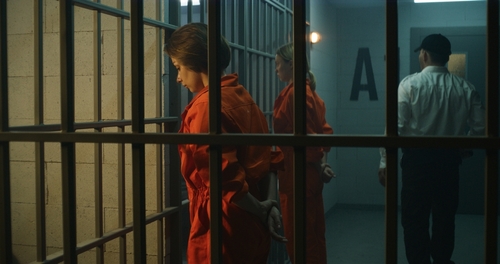The January 6th prisoners have raised their voices, decrying inadequate legal treatment and calling for justice system reforms. Their plea argues for equity in the legal process, emphasizing a need for system-wide reassessment. As political dynamics and public opinion swirl around these calls, the potential pardon of these individuals further complicates the debate. What does this mean for justice and fairness in America?
Voices from Within
A key defendant from the January 6th Capitol riot recently sent a jailhouse letter highlighting experiences during imprisonment. This letter revealed solidarity forged among inmates and voiced concerns about perceived biases in legal proceedings. The letter indicated that defendants stand united, even boasting about those rallying against them and their cause. Such prison camaraderie underscores the collective call for systemic reforms and equity in due process.
The content of the letter invites public scrutiny and dialogue about fair trials and transparency. The prisoners demand that injustices be addressed and standards of equity be upheld for all defendants, regardless of political affiliations. This move aims to draw attention to the perceived injustice in handling and trial of January 6th participants.
Julian Khater, a member of the January 6 choir honored by Trump, pleaded guilty to assaulting Officer Brian Sicknick and another officer with pepper spray. Khater was sentenced to 80 months in prison. https://t.co/wAmCQrOJ0V https://t.co/0WZTSdoAWy
— Thomas Joscelyn (@thomasjoscelyn) March 30, 2024
The Presidential Pardon Debate
Former President Donald Trump’s promise to pardon January 6th rioters if reelected has sparked a whirlwind of debate. Referring to these individuals as “political prisoners,” Trump characterizes them as patriots, echoing their sentiments from behind bars. However, this notion has been met with considerable opposition, with two-thirds of Americans reportedly disapproving of potential pardons. Critics argue that such action equates to an endorsement of attacks on democracy.
The potential misuse of presidential powers to pardon these individuals is seen by critics as a breach of public trust. While the U.S. Constitution grants broad pardon powers, the traditional process involves thorough assessments, not applicable here. The pardons could undermine the deterrence against future aggression and embolden extremist groups, casting aspersions on justice as a reward for personal loyalty.
Trump And Jan. 6 Prisoners Collaborate On New Song Called ‘Justice For All’ https://t.co/OTSeYCTYYe pic.twitter.com/8V68Q2fcdS
— Forbes (@Forbes) March 4, 2023
Public’s Perspective and Political Implications
Public opinion remains sharply divided on this issue. Whereas Trump’s supporters converge on the view of justice system reform, critics warn of political motivations surpassing principles of justice and rehabilitation. President Biden’s contrasting approach of pardoning nonviolent offenders further complicates the narrative. His emphasis on remorse and rehabilitation presents an alternative model of clemency, rooted in traditional interpretations of justice.
As the discourse continues, it challenges the nation to evaluate the true meaning of justice, equity, and the rule of law. It underscores an urgent call for comprehensive reforms to ensure fairness across the board, ultimately questioning the integrity and application of justice in a democratic society.
Sources:
Lawmakers Tour D.C. Jail Where Jan. 6 Defendants Are Held – The New York Times

